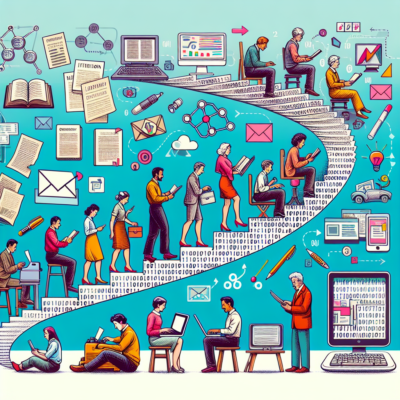In our rapidly evolving digital era, traditional literacy skills remain a cornerstone for thinking, writing, researching, and communicating. For instance, the ability to read and comprehend complex texts is crucial when conducting online research. Similarly, effective writing skills are essential for clear and concise communication in digital platforms. As technology continues to shape the educational landscape, the importance of reading, writing, and critical thinking remains the foundation of advanced communication. However, our understanding of literacy has expanded in recent years with the new digital tools and platforms we are called upon to use daily at school and work. Social media platforms like X and Instagram require concise and engaging communication and critical evaluation of information. Online collaboration tools such as Google Docs and Microsoft Teams promote real-time collaboration and effective written communication skills. These digital methods expand our understanding of literacy and are vital for success in the modern world. UNESCO provides us with a clear, updated and expanded definition of literacy, highlighting its continuous evolution and our active participation in this dynamic learning process.
“Beyond its conventional concept as a set of reading, writing and counting skills, literacy is now understood as a means of identification, understanding, interpretation, creation, and communication in an increasingly digital, text-mediated, information-rich and fast-changing world. Literacy is a continuum of learning and proficiency in reading, writing and using numbers throughout life and is part of a larger set of skills, which include digital skills, media literacy, education for sustainable development and global citizenship as well as job-specific skills. Literacy skills are expanding and evolving as people increasingly engage with information and learning through digital technology.”
To survive and thrive in today’s information-rich society, we must navigate complex texts, synthesize diverse sources, and construct coherent arguments while communicating effectively. Additionally, to be considered literate, Professor Demis Hassabis, a renowned AI expert and co-founder of Google DeepMind, emphasizes the importance of nurturing problem-solving abilities and adds that we must also focus on creativity and emotional intelligence. When it comes to our children’s education, according to Professor James Lee, we need to learn how to balance using AI for its benefits, such as collaboration, personalized feedback, and an improved learning experience, while also ensuring the development of essential cognitive skills, which is crucial for holistic student growth and success.
In response to these changes, educators need to be both guides and architects of student success. Professor Adam Grant, the top-rated business professor at Wharton for the past seven years, shares this perspective. He emphasizes that integrating AI (including social media platforms) and traditional literacy is a key strategy for preparing students to thrive in an increasingly digital world. Similarly, Satya Nadella, the CEO of Microsoft, underlines the pivotal role of educators in equipping students with the necessary skills to excel in the digital age.
In conclusion, integrating traditional literacy skills with new technologies is crucial for success in our ever-evolving digital world. Educators are vital in guiding students toward balanced cognitive, emotional and social abilities and technological proficiency development. By embracing this dynamic educational landscape, we can equip future generations with the necessary skills to thrive in an increasingly digitized and media-saturated society.
UNESCO quote taken from https://www.unesco.org/en/literacy/need-know
#DigitalLiteracy #EdTechIntegration #21stCenturySkills #MediaLiteracy #AIinEducation #StudentSuccess

